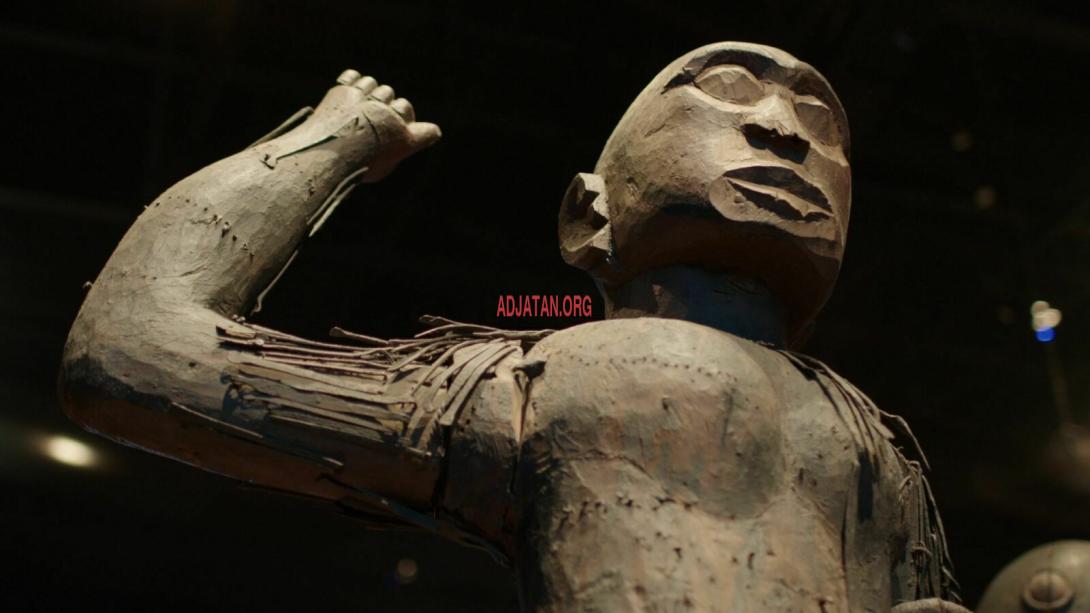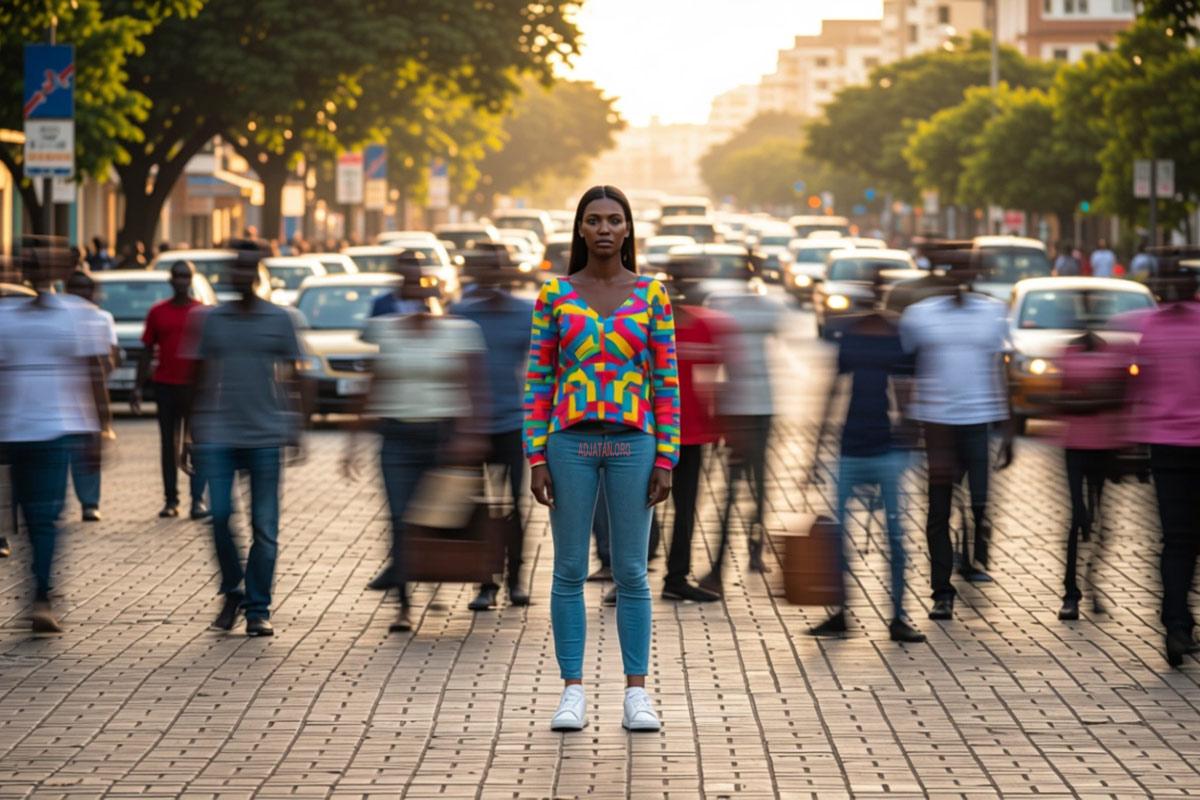
Africa has seen a significant part of its cultural treasures taken away during the colonial era, ending up behind the glass of Western museums. Masks, jewelry, manuscripts, and statues are displayed there, but these works of art bear the painful imprint of colonial occupation and looting. The documentary "Restitution? Africa in Search of its Masterpieces" explores this complex history and the aspiration of African nations to reclaim their heritage. This loss not only deprived African communities of their cultural assets but also interrupted the historical and spiritual connection they had with these objects. Each artifact tells a unique story, reflecting traditions and craftsmanship passed down through generations. The documentary highlights not only the beauty of these works but also the injustice of their forced extraction.
A History of Exile and Resistance
Most African artworks left the continent during the colonial occupation. Three-quarters of Sub-Saharan Africa's heritage is now outside the continent, scattered in museums and private collections worldwide. However, voices have always risen to demand the return of these looted works. In 2017, for the first time, a French president, Emmanuel Macron, promised to return African treasures to states that request them, marking a turning point in this struggle. This promise is part of a long tradition of African resistance, from local leaders' protests against the looting of their lands and treasures to the decolonization movements of the 20th century. Art objects are not mere decorations; they are symbols of sovereignty and cultural resilience.
Macron's Promise and Its Repercussions
This promise sent shockwaves through European museums, fearing the loss of invaluable collections. The French government then commissioned Senegalese philosopher Felwine Sarr and French art historian Bénédicte Savoy to guide this restitution project. Their report insisted on the urgent and definitive return of African works, arguing that it was about rebuilding relations between Europe and Africa on fairer grounds. The Sarr-Savoy report is not just a recommendation; it is a manifesto for a new ethics of cultural heritage management. By insisting on restitution, it calls for a recognition of colonial violence and the repair of historical injustices. This initiative sparked intense debates in the art world and among policymakers, with some fearing a "draining" of European museums, while others see it as an opportunity for historical justice.
The Specter of Colonization
The documentary, directed by Nora Philippe and written by Philippe and Karim Miské, emphasizes how colonial plunder fueled European collections. The Berlin Conference of 1884-85 marked a decisive step in the systematic exploitation of African resources, leading to the massive transfer of cultural objects to European metropolises. Museums like the British Museum and the Louvre enriched themselves with African treasures, often obtained by force or coercive means. The kingdom of Dahomey, for example, was particularly affected by this looting. French troops took thousands of objects after the conquest of Béhanzin in 1892, including royal thrones, statues, and insignia of power. These objects, now displayed in museums like the Quai Branly in Paris, are silent witnesses to the violent history of colonization.
Restitution: A Political and Moral Challenge
Debates around restitution do not only concern the physical return of objects but also the recognition of past wrongs and the rebuilding of relations between Africa and Europe. Objects like the Benin Bronzes, looted in 1897 by British forces, are scattered worldwide, symbolizing this disconnection between African cultures and their heritage. Restitution of these works is seen as a necessary act of justice to repair the damage caused by centuries of colonization. The return of these objects could also revitalize local artistic traditions and allow Africans to reclaim their history. Additionally, restitutions are a way to redefine international relations on a fairer basis, recognizing the value and importance of African cultures in world heritage. A concrete example of this approach is France's restitution of 26 art pieces to Benin in November 2021, originating from the treasures of the Abomey palace. These works, including thrones, statues, and carved doors, were displayed at the Quai Branly Museum before their long-awaited return to Benin, marking a significant step in the restitution process.
The Resistance of European Museums
Major European museums, particularly in Germany and Britain, have shown strong resistance to the idea of restitution. They often invoke legal arguments and the notion that these objects are better preserved and valued in Europe. However, this position is increasingly contested by African countries and a public sensitized to colonial injustices. The resistance of European museums is often seen as a continuation of colonial arrogance, refusing to recognize Africans' right to their own heritage. Arguments that African museums would not be able to adequately preserve these works are increasingly criticized, especially as many African countries are heavily investing in the construction and renovation of modern museums. Additionally, international collaboration initiatives aim to strengthen local capacities in conservation and museum management.
A New Era for African Museums
Meanwhile, Africa is preparing to welcome its recovered treasures. Initiatives like the Museum of Black Civilizations in Dakar or the upcoming archaeological museum in Benin City show a willingness to reclaim cultural heritage and create new spaces dedicated to African history and culture. These projects are often supported by foreign funding and are part of a dynamic of tourism development. The Museum of Black Civilizations, for example, inaugurated in 2018, is a symbol of cultural renaissance for Senegal and Africa. It aims to showcase the richness and diversity of African cultures while serving as a platform for intercultural dialogue. Similarly, the new museum project in Benin City is designed to house the Benin Bronzes and other historical treasures, providing Nigerians with a space to celebrate and preserve their cultural heritage. These initiatives demonstrate that Africa is ready to take charge of and enhance its heritage, contradicting stereotypes about Africans' inability to manage their own cultural treasures.
The Agents of Change
The documentary highlights key figures in this restitution process, such as Léonie Simaga, Thibault Kienz Agyeman, and Jocelyn Robert. Their voices and actions illustrate the complexity and urgency of the situation. Artistic direction and photography play a crucial role in the narrative, bringing a powerful visual dimension to the stories told. These agents of change do not just demand the return of works; they actively participate in redefining cultural and historical relations between Africa and Europe. The work of these artists and intellectuals is essential in raising global public awareness of the importance of restitution and ensuring that returned objects are meaningfully integrated into contemporary African societies. Their commitment shows a desire to transform historical trauma into a process of healing and cultural renewal.
Produced in France and distributed by ARTE, TV5 Monde, and Cinétévé, this documentary offers a necessary and poignant exploration of the challenges of African heritage restitution. It shows that museums can play a crucial role in reconciling former colonies and colonial powers by returning not only objects but also stories and cultural identities.





